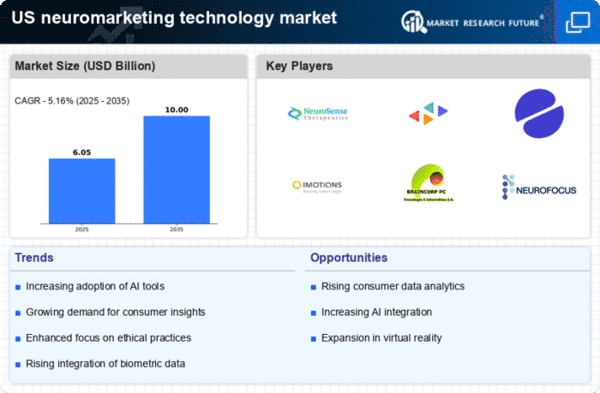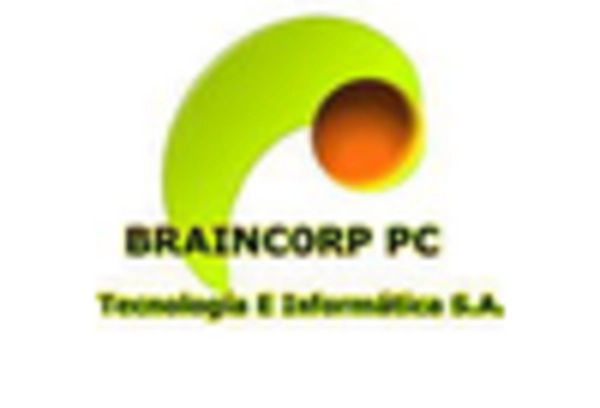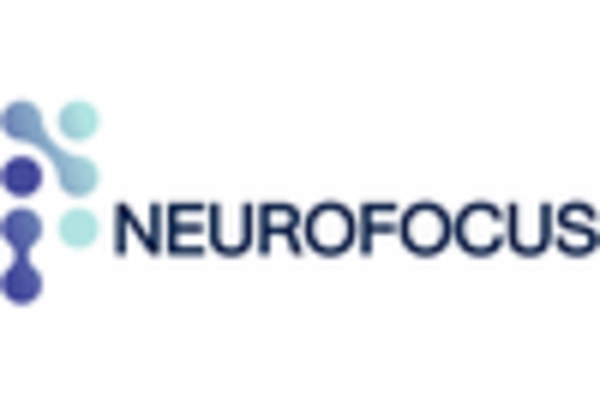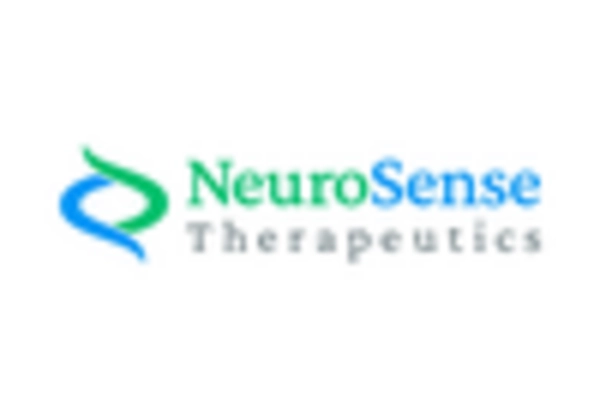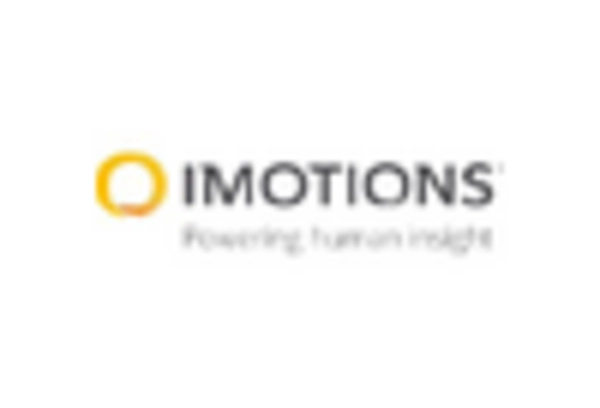Rise of Digital Marketing Channels
The neuromarketing technology market is benefiting from the rise of digital marketing channels. As more consumers engage with brands online, understanding their behavior in digital environments becomes essential. Neuromarketing technologies can analyze how users interact with digital content, providing insights that help optimize online marketing strategies. The digital advertising market in the US is projected to surpass $200 billion by 2025, creating a fertile ground for neuromarketing applications. This trend suggests that as digital marketing continues to evolve, the neuromarketing technology market will likely expand in tandem, offering innovative solutions for brands.
Increased Focus on Consumer Experience
The neuromarketing technology market is significantly influenced by the increased focus on consumer experience. Companies are recognizing that understanding the emotional and psychological factors that drive consumer decisions is crucial for success. Neuromarketing technologies provide insights into how consumers perceive brands and products, allowing businesses to enhance their customer experience strategies. This shift is evident in the growing number of companies investing in neuromarketing research, with expenditures in this area expected to exceed $500 million by 2025. As organizations prioritize consumer experience, the neuromarketing technology market is poised for substantial growth.
Emerging Trends in Consumer Neuroscience
The neuromarketing technology market is being shaped by emerging trends in consumer neuroscience. Research in this field is uncovering new insights into how consumers make decisions, driven by factors such as emotions, memory, and social influences. These findings are prompting marketers to adopt more scientifically grounded approaches to their strategies. The increasing collaboration between neuroscientists and marketers is fostering innovation in the neuromarketing technology market, with new tools and methodologies being developed. As consumer neuroscience continues to evolve, it is expected to play a pivotal role in shaping marketing practices, potentially leading to a market growth rate of 15% annually.
Advancements in Brain Imaging Technologies
The neuromarketing technology market is experiencing a surge due to advancements in brain imaging technologies. Techniques such as functional magnetic resonance imaging (fMRI) and electroencephalography (EEG) are becoming increasingly sophisticated, allowing marketers to gain deeper insights into consumer behavior. These technologies enable the measurement of brain activity in response to marketing stimuli, providing valuable data that can inform advertising strategies. The market for fMRI systems alone is projected to reach approximately $1.5 billion by 2026, indicating a robust growth trajectory. As these imaging technologies become more accessible and affordable, their integration into marketing strategies is likely to expand, enhancing the effectiveness of campaigns in the neuromarketing technology market.
Growing Demand for Personalized Marketing Solutions
The neuromarketing technology market is driven by the growing demand for personalized marketing solutions. Consumers increasingly expect brands to tailor their offerings to individual preferences, and neuromarketing technologies facilitate this by analyzing emotional and cognitive responses. By leveraging data from neuromarketing studies, companies can create targeted campaigns that resonate with specific demographics. This trend is reflected in the increasing investment in neuromarketing tools, with the market expected to grow at a CAGR of around 20% over the next five years. As businesses recognize the value of personalized marketing, the neuromarketing technology market is likely to see continued expansion.


